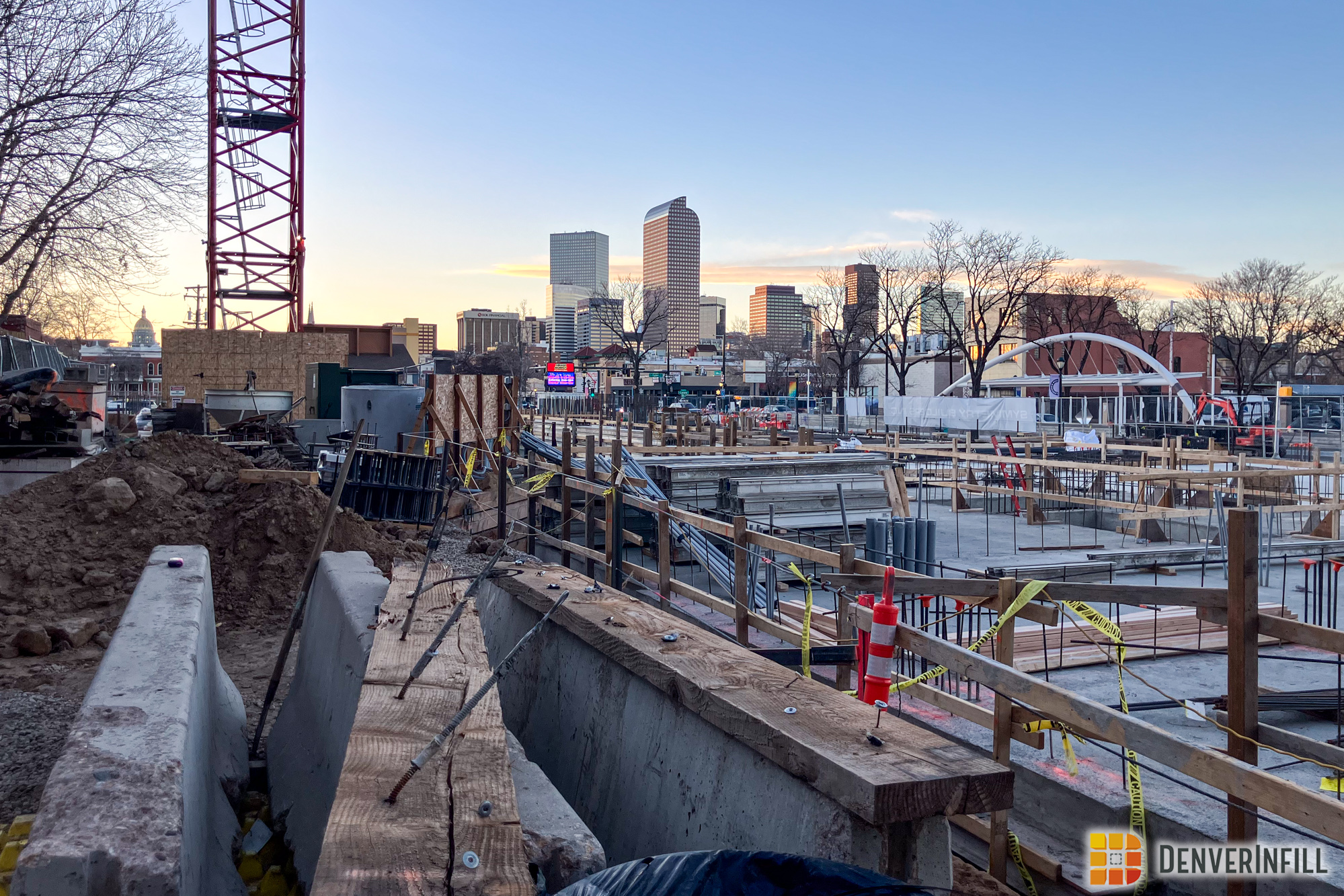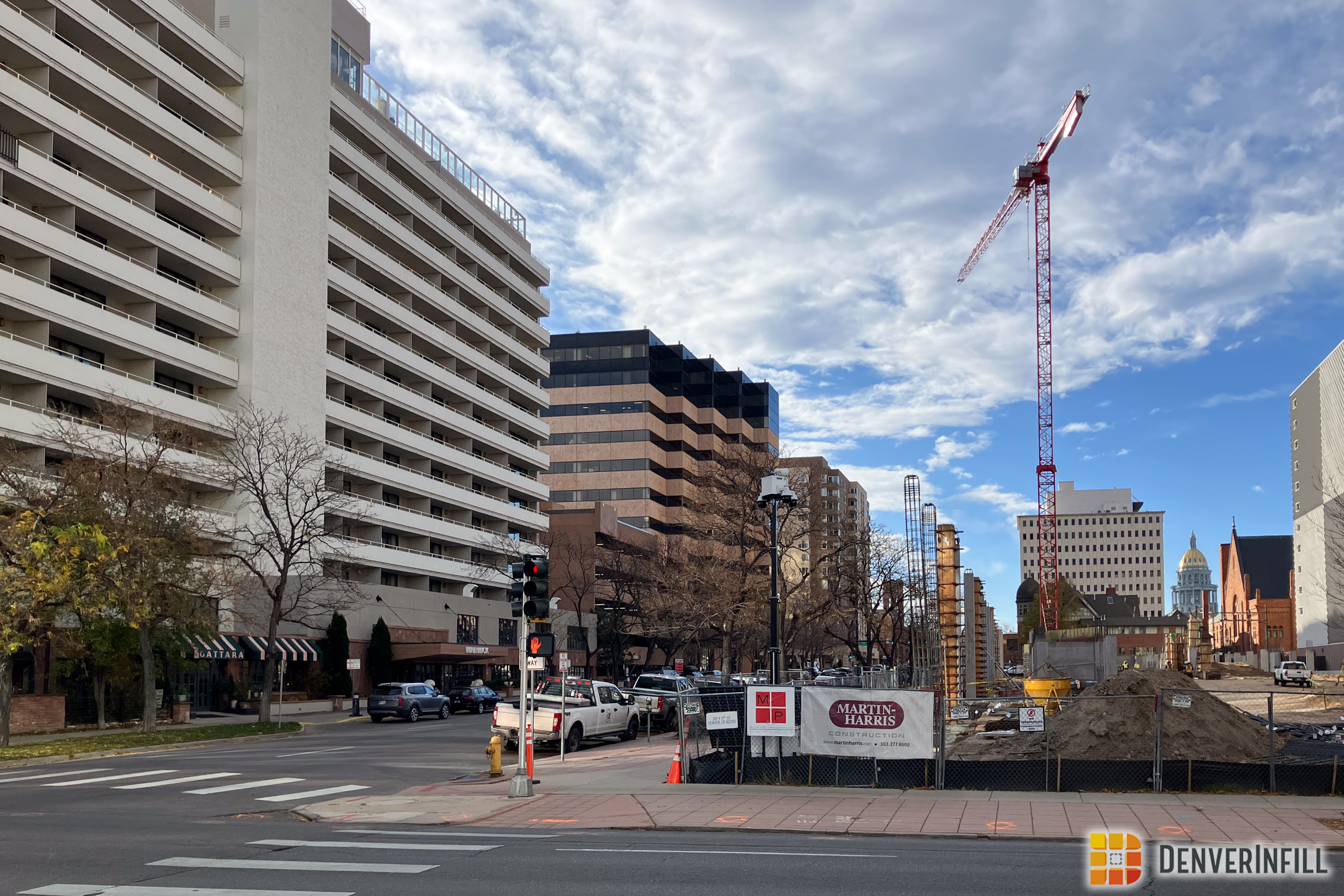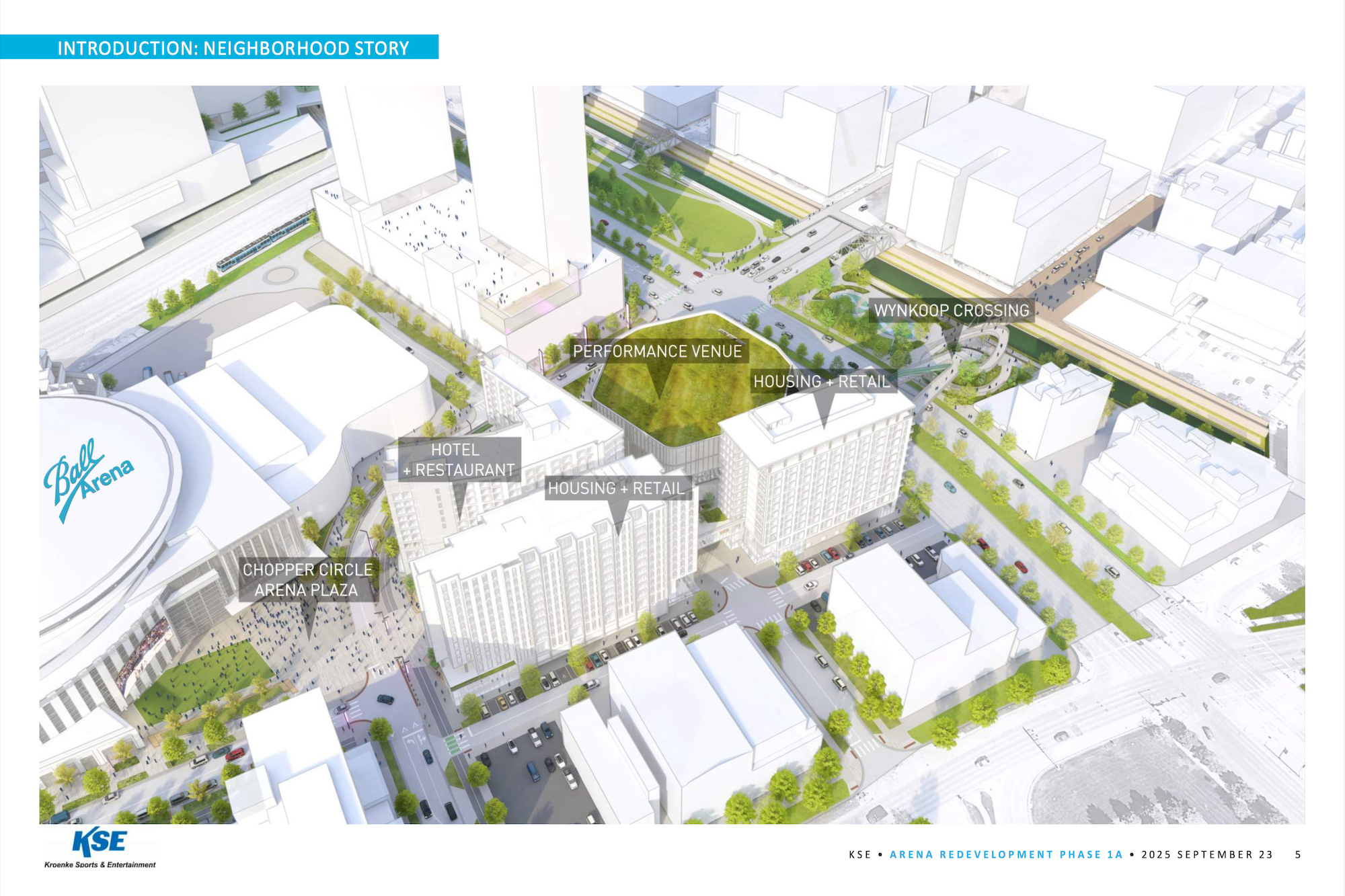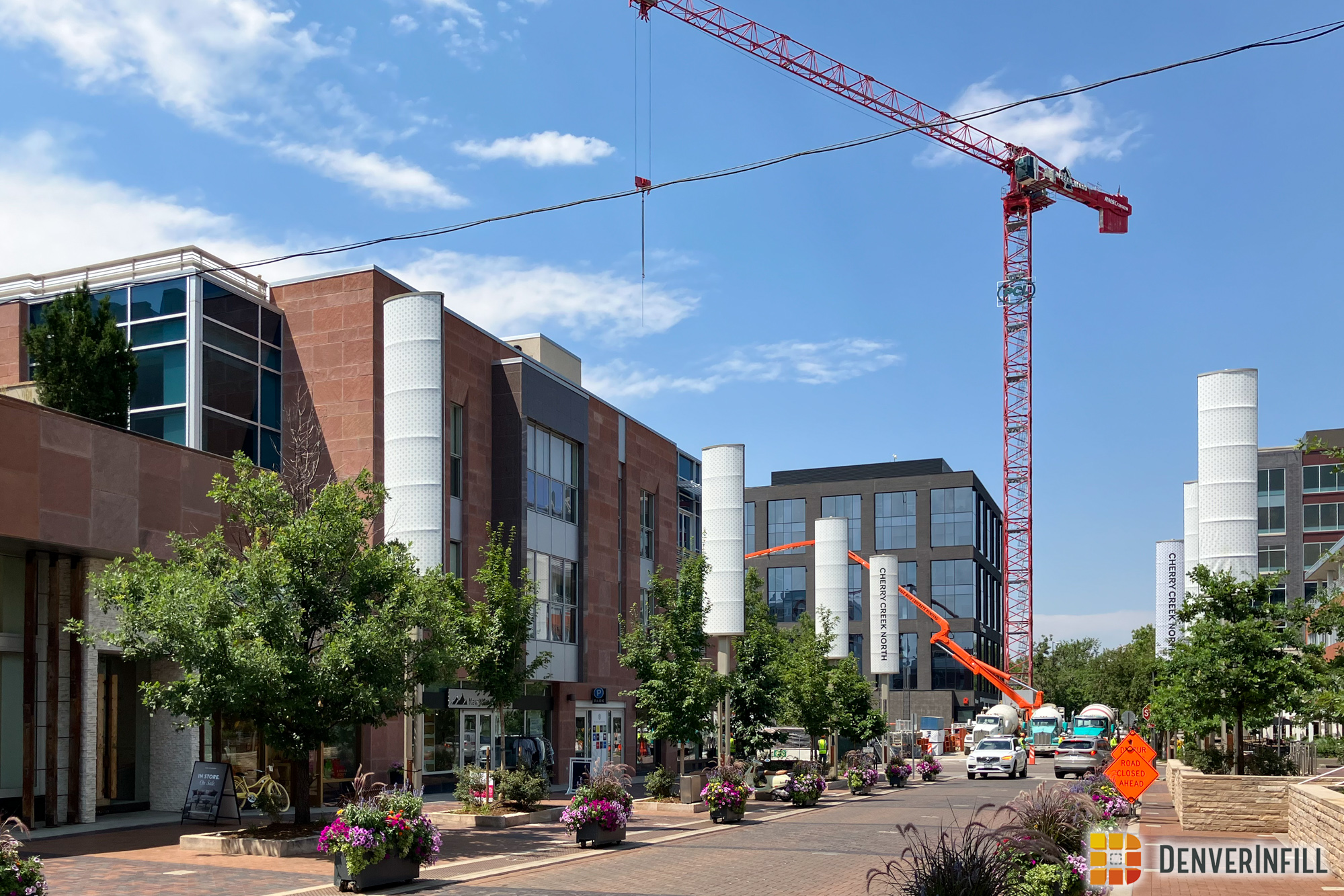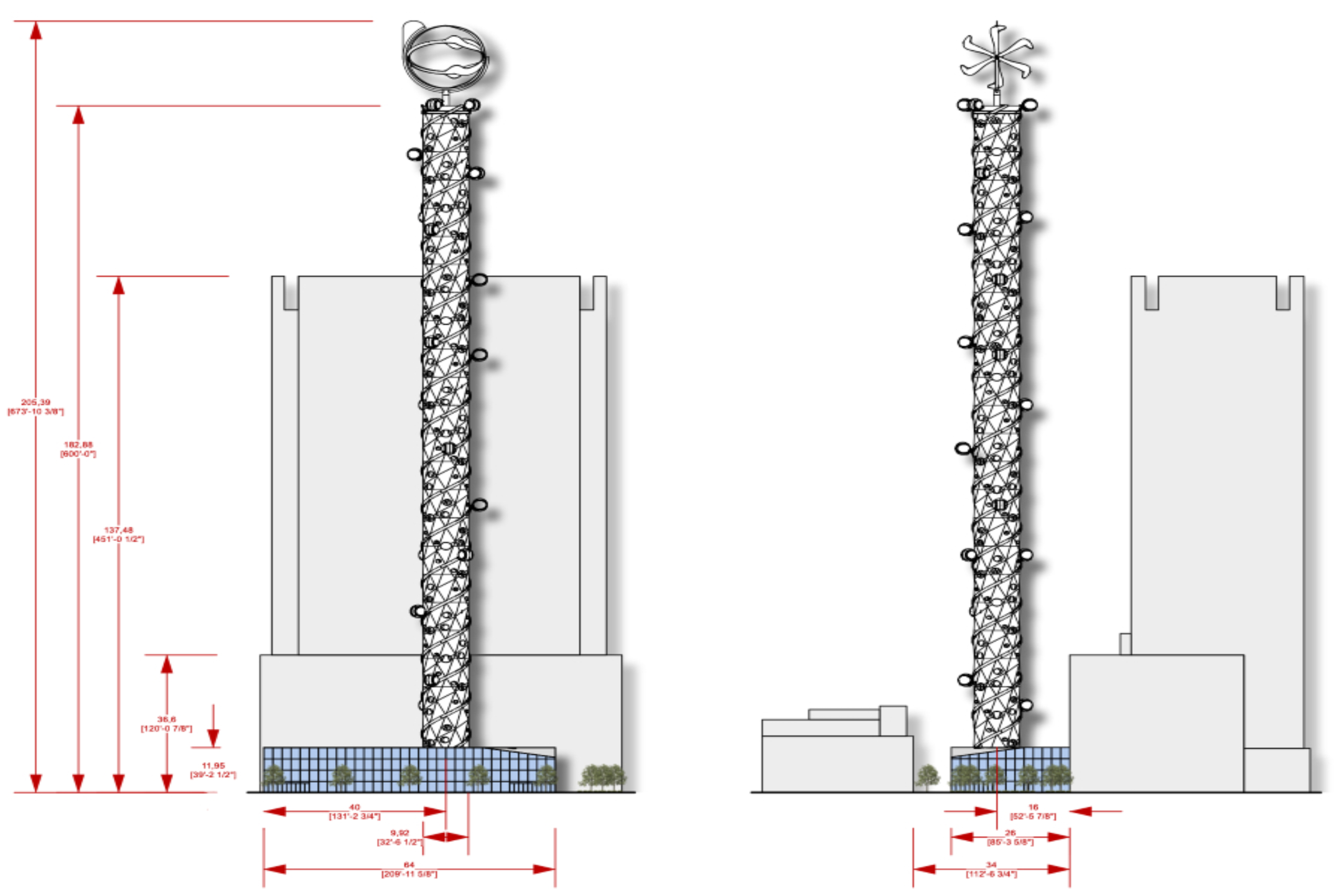When the news was released a couple of months ago that Six Flags is planning on selling Elitch Gardens, its Downtown Denver theme park, there was a lot of speculation around town that the sale of the property could potentially lead to its redevelopment. A new owner could sell off the parts and pieces of the amusement park and redevelop the site into a mixed-use, high-density neighborhood similar in nature to East West Partners’ Riverfront Park. Some people are for this idea. Others, including me, are opposed, and would like to see Elitch Gardens remain in Downtown Denver. Today I have a few more thoughts on this topic.
The question of Elitch Garden’s future doesn’t have to be Redevelopment vs. the Status Quo. Why can’t we have both?
Elitch Gardens’ relocation from Northwest Denver was an important factor in the redevelopment of the Central Platte Valley and the revitalization of Downtown in general. Today, it continues to serve as a key component of Downtown Denver’s urban tourism infrastructure. It’s one more thing for visitors to do when they travel to Denver, and it’s one more reason for metro Denver residents to spend time and money in Downtown. For years, Denver has been trying to assert itself as a tourist destination in its own right, instead of just being a pit stop for tourists on their way to the mountains. Having a Downtown amusement park is an important part of that effort. Denver is reportedly the only major US city with an amusement park right Downtown. Why would we remove a unique and positive attribute from our Downtown when we don’t have to?
The problem is that Elitch Gardens and its neighbor, the Pepsi Center, were both developed following a suburban model. Sure, the setting is urban, but they’re both single-use facilities surrounded by acres of surface parking. Perhaps there’s slightly less parking for each than if they were located on a sprawling suburban site, but that’s about the extent to which either address their urban surroundings. Elitch’s turns its back to the Platte River instead of embracing it, and the Downtown Aquarium across the river from Elitch’s might as well be miles away, for the two fail to acknowledge each other in any way. The Pepsi Center, meanwhile, draws several million people to hundreds of events a year, but doesn’t really relate in any meaningful way to any of its neighbors, and offers not much more than asphalt for fans to enjoy on their way to and from LoDo. And, of course, the light rail station sitting in between Elitch Gardens and the Pepsi Center serves patrons of both venues well, but that’s about it. The station is essentially unusable to any other customer base as no one else is conveniently nearby.
What we need to do is urbanize the Pepsi Center and Elitch Gardens sites. Several major structured parking facilities should be built on the surface lots surrounding the Pepsi Center, wrapped with a mix of housing, office, hotel, and retail uses. Together, these parking garages could provide at least as many public parking spaces as are available now, while providing sufficient parking for the additional uses too. Reestablishing the Downtown street grid across the Pepsi Center site would not only shape the urban form to these new developments, but also provide the pedestrian connections and environment necessary to make the Pepsi Center a tightly integrated part of Downtown. Incorporated into the Pepsi Center mixed-use development design could be a permanent outdoor amphitheater to replace the current temporary Pavilion, new parks, and even a street configuration that would allow for the annual Grand Prix to remain at the site.
With Elitch Gardens sharing the new Pepsi Center parking structures, that would free up Elitch’s parking lots for redevelopment. One of them could be made into a park, giving Elitch’s some much needed green space (gardens even!) and a place for visitors to picnic. The remaining surface parking lots could be redeveloped with structured parking, housing and retail, or as expansion room for the amusement park itself. Finally, with minor reconfiguration of the streets at Elitch’s entrance and a pedestrian bridge across the Platte, the Downtown Aquarium, Elitch’s, the light rail station, the Pepsi Center, and the Tivoli on the Auraria campus would all be linked via a strong pedestrian-friendly 9th Street corridor. The Auraria campus could also be urbanized with the addition of certain non-educational uses and an adherence to the Downtown grid as the campus grows.
We don’t need to get rid of Elitch Gardens. We can keep the amusement park and add as many condos as we could put in its place if the Pepsi Center parking lots are replaced with structured parking wrapped with mixed-use. If we have the vision to view Elitch Gardens, the Pepsi Center, and the Auraria Campus not as large, single-use venues but as mixed-use activity centers that are tightly interwoven into the fabric of Downtown, we can create a walkable, engaging Downtown environment that stretches to the Platte River from the Confluence all the way to Colfax. Mr. Kroenke should buy Elitch Gardens (and the Downtown Aquarium for that matter) and work with the city and a prominent urban design firm to create a master plan for this part of the Central Platte Valley that will transform it into a true urban entertainment district.

